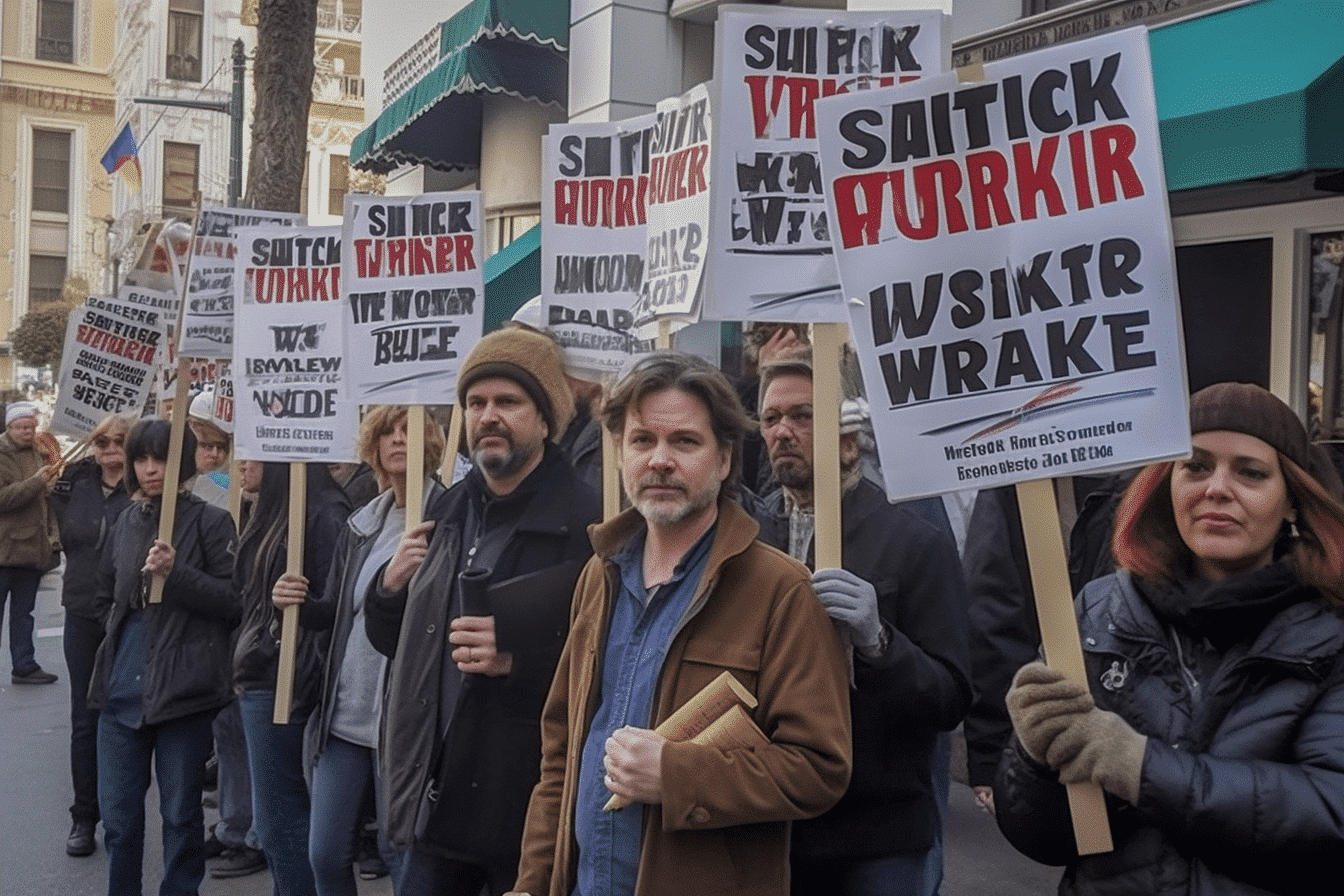“Raiders of the Lost Ark” presents a scene where Indiana Jones implores Marion Ravenwood to trust him, only to be met with an attempted punch. The striking writers against the major studios may feel a similar sentiment when the studios tell them, “Trust us.” The roots of this mistrust are deeply entrenched in Hollywood’s history.
In the ongoing negotiations between the Writers Guild of America and the Association of Motion Picture and Television Producers (AMPTP), residual payments and writer compensation for streaming services are significant areas of dispute. The guild seeks greater transparency concerning streaming data and wants to share in the success of popular shows, as was the case with syndicated TV show reruns.
After more than a week on strike – the first in 15 years – the guild is increasingly suspicious of studios concealing their profits, a contentious issue that has led to several lawsuits in the past. The suspicion has intensified in the streaming era, where data regarding viewer numbers for TV shows and movies is often withheld.
The lack of such data has also frustrated journalists. Although Netflix started providing some information about its most popular shows in 2021, streaming services generally continue to be cagey about their performance metrics.
Streaming has added new layers of complexity to an old issue – the chronic mistrust between talent and studios. This situation is humorously encapsulated by a joke often attributed to Mel Brooks, which suggests that studios taunt their skill with the elusive promise of hidden money.
In the 1990s, changes in federal regulations allowed studios to own significant TV networks, which resulted in lawsuits over shows like “Home Improvement” and “The X-Files.” The same company that produced these shows also broadcasted them, causing creators to worry about deals that didn’t deliver fair-market value.
The rise of streaming has reignited concerns about whether writers receive fair compensation when their shows are successful. The studios responded to several of the writers’ contract demands, but the guild claims that all questions about streaming residuals were dismissed outright.
As reported by the Hollywood Reporter, the WGA is pursuing residuals based on viewership to reward high-performing shows. However, this would require the transparency of viewership data, a demand to which streaming services have been generally resistant, even to the stars of their shows and movies.
These negotiations occur at a time when studios are investing heavily in attracting subscribers, thereby testing the financial viability of streaming. Concurrently, more consumers are abandoning traditional cable and satellite subscriptions, casting a shadow over the future of linear networks.
This evolving business model doesn’t resolve the issue of sharing the financial success of hit streaming shows like “Stranger Things” or “Succession” with the talent involved.
Writer-director Judd Apatow described the problem to Variety: “We have a system now that does not reward success for many of these projects. If you make something and a billion people watch it, you don’t make more money than if it was a disaster.”
The landscape of the entertainment business has undergone significant changes since the conclusion of the last writers’ strike in 2008. This was before Netflix’s significant foray into production and the launch of streaming services by Apple, Amazon, Disney, and others.
The ongoing labour disputes in Hollywood often rehash old battles. However, the emergence of streaming and the sense that creatives are not fully compensated for their contributions is a fresh challenge. Much like the upcoming Indiana Jones sequel, it feels like a familiar narrative in a new context.
Writers demand that studios be transparent about their financial records, a request that has consistently been met with resistance. It recalls the words of a former US president and one-time leader of the Screen Actors Guild, who borrowed a Russian proverb concerning US-Soviet relations: “Trust, but verify.”
As the standoff continues, it is clear that trust between writers and studios is in short supply, just as it was when Indiana Jones asked Marion to believe in him. As the future of streaming and its effect on Hollywood unfolds, the industry awaits the conclusion of these negotiations. Ultimately, the resolution will provide a crucial benchmark for future disputes and may set a new precedent for the industry. In the spirit of those Russian words of wisdom, the writers will keep demanding transparency and the right to share in the success of their creations.




